
RECOVER 2.0: New Insights and Next Steps in Long COVID Research
Researchers from the NIH-funded RECOVER study shared new insights on the risks of Long COVID, autoimmune links, and upcoming clinical trials during ISB’s July Town Hall.
The Heath Lab, led by Dr. Jim Heath, works on challenging problems in translating precision medicine from benchtop to bedside, with a focus on oncology.

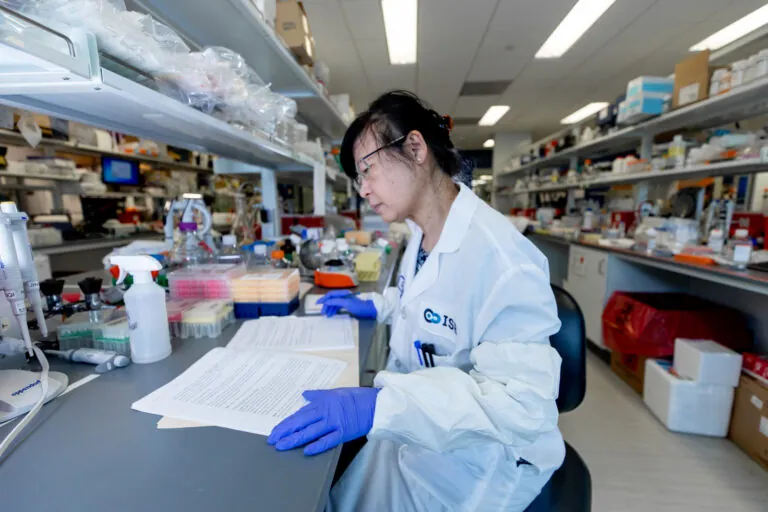
Sarah Li, Lab Instrumentation Manager, working in the Heath Lab. Photo credit: Scott Eklund / Red Box Pictures.
Many women are at high genetic risk of developing ovarian cancer. Strategies for early disease detection and preventive, non-surgical treatments are urgently needed. The Swedish Cancer Institute’s Paul G. Allen Research Center and the Heath Lab are collaborating to address both of these challenges.

A proteomics UMAP (Uniform Manifold Approximation and Projection) image overlayed onto a microscopy image of an ovarian cancer tumor. Image credit: Chong Xia/ISB.
Cancer researchers have shown that sequencing rather than combining immunotherapies with drugs targeting cancer cells can dramatically improve outcomes for some patients. Under the leadership of Jim Heath, ISB, Yale, and UCLA are collaborating to optimize therapy sequencing for many more patients.
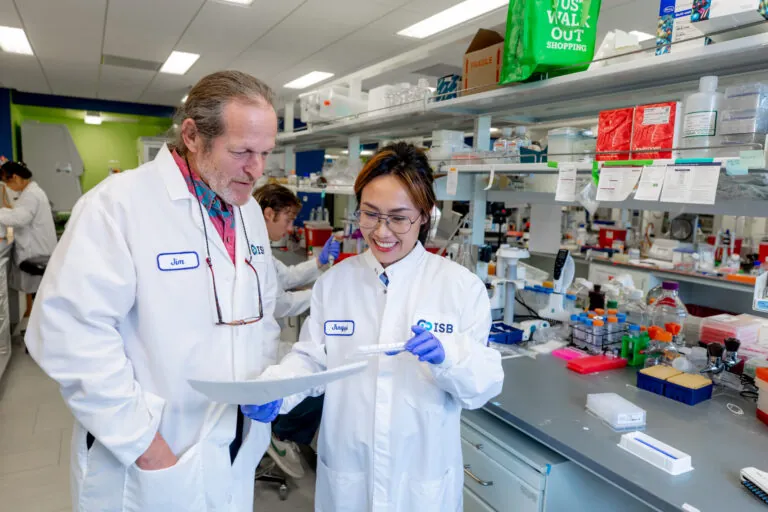
Dr. Jim Heath with former grad student Dr. Jingyi Xie working in the lab at ISB. Photo credit: Scott Eklund / Red Box Pictures.
There are few treatment options for advanced cervical, head and neck, and other HPV cancers. With support from the Andy Hill CARE Fund, the Heath Lab, with Swedish, UCLA, and the City of Hope, is developing cell-based immunotherapies for advanced HPV cancers.
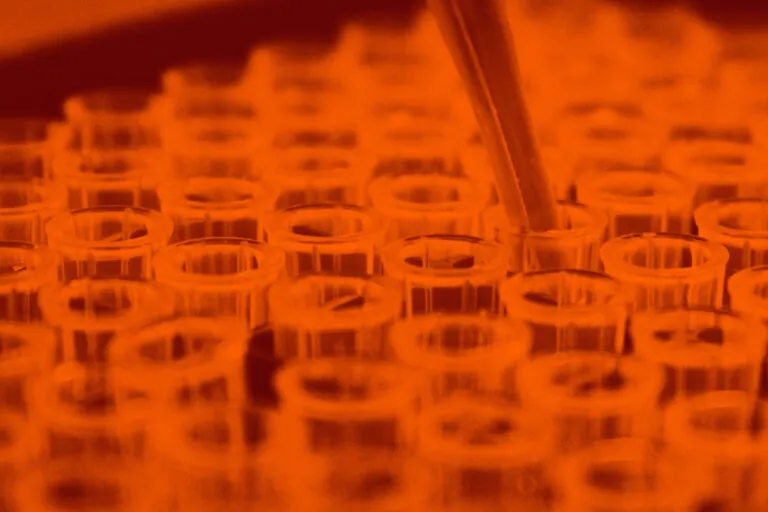
Test tubes. Photo credit: Louis Reed/Unsplash, recolored by ISB.
T-cell receptor (TCR) therapies are extremely promising for treating patients with advanced malignancies but are often designed so that only a small fraction of patients can be treated. Supported by the Parker Institute and the NCI, the Heath Lab is developing approaches so that all patients, regardless of their genetics, can benefit from such treatments.

RECOVER Consortium branding image. Image credit: RECOVER/ISB.
In 2023, the CDC estimates that 7 percent of U.S. adults had Long COVID, which is debilitating and difficult to treat. Jim Heath is leading the Pacific Northwest Consortium of the NIH-funded RECOVER nationwide Long COVID study. The Consortium includes Swedish, Providence Spokane, UW, and Cedars-Sinai and is working to unravel the confounding heterogeneity of Long COVID and to unearth potential treatments.

Researchers from the NIH-funded RECOVER study shared new insights on the risks of Long COVID, autoimmune links, and upcoming clinical trials during ISB’s July Town Hall.

In a Research Roundtable presentation and Q&A, ISB President Dr. Jim Heath shared how his team is using generative AI to unlock new understanding of human immunity, and how these discoveries could help predict disease severity, improve cancer therapies, and more.
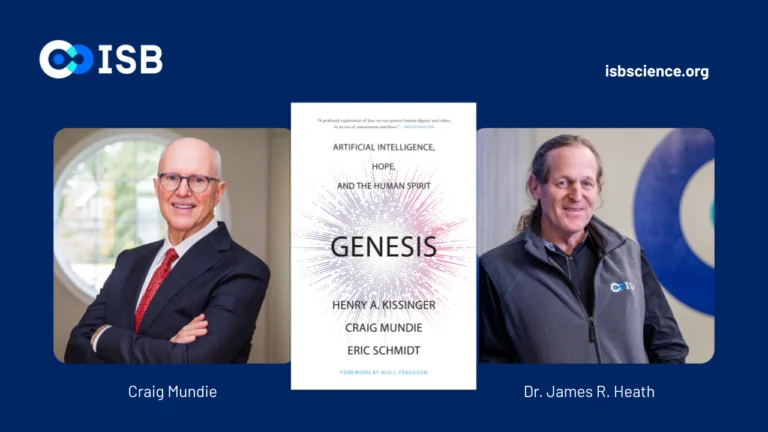
Co-Author Craig Mundie and ISB’s Dr. Jim Heath discuss AI’s rapid evolution, ethical considerations, and potential to revolutionize science and society in a compelling Town Hall event.
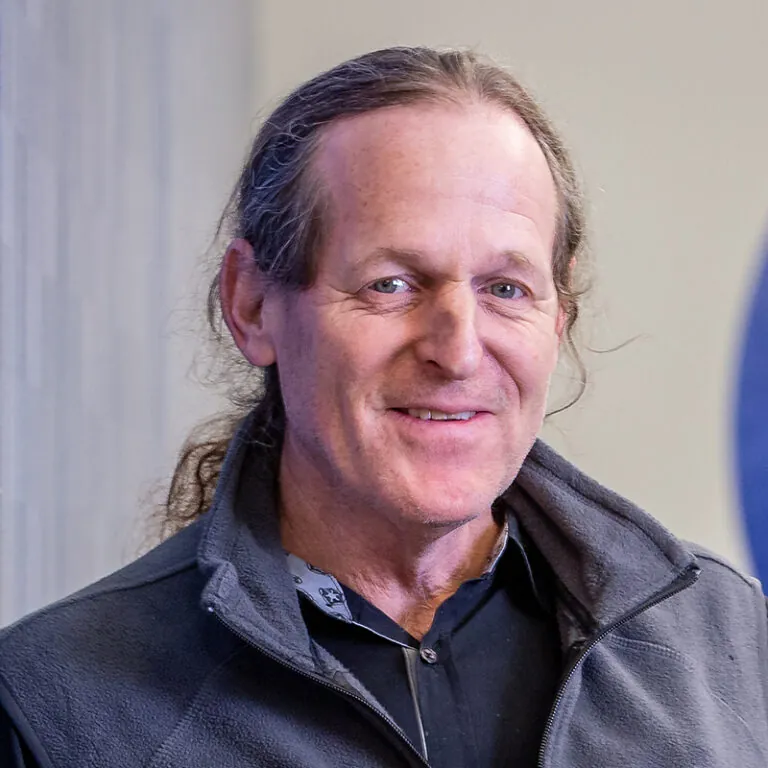
President and Professor
ISB